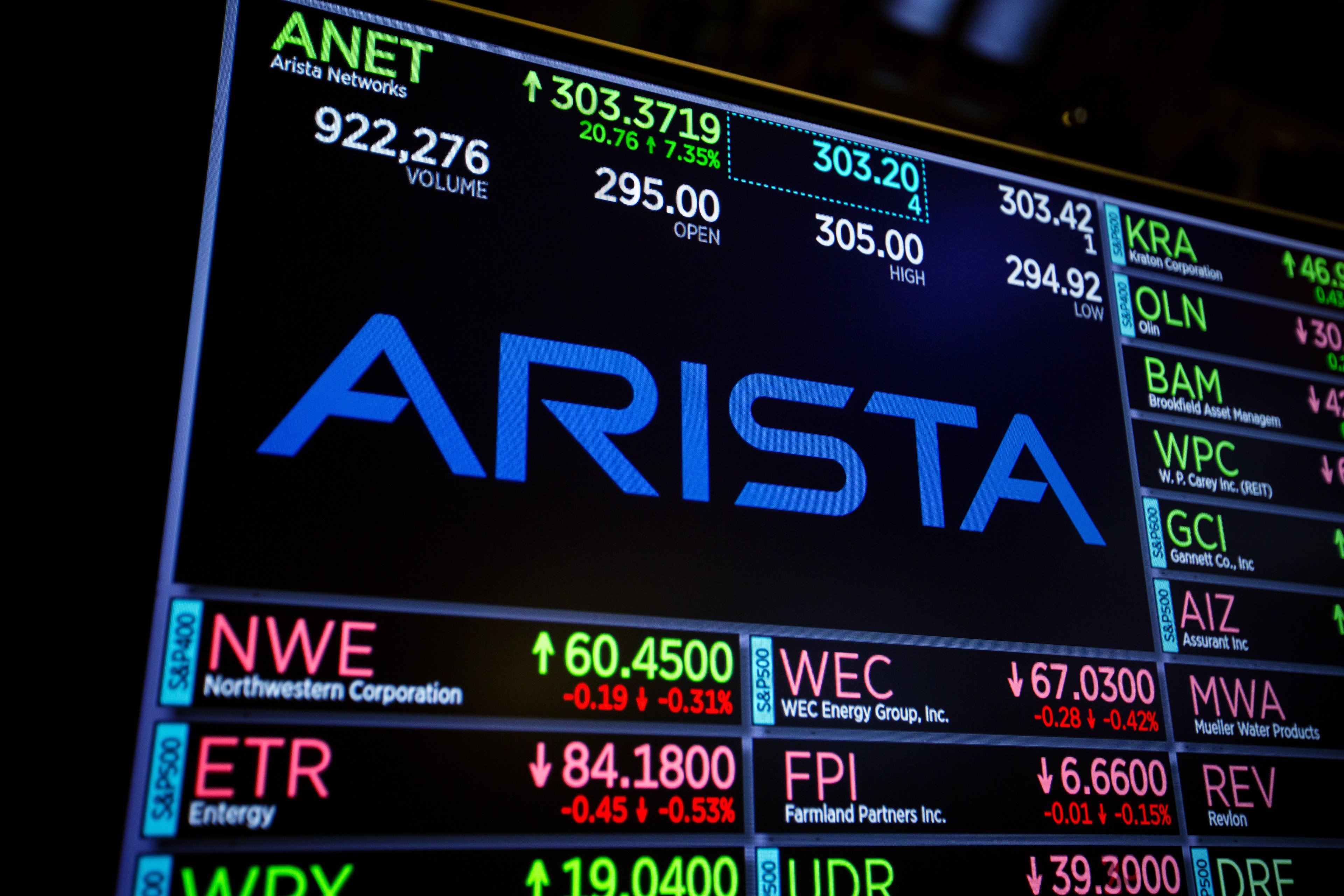The year 2020 was already going to be a ho-hum one for Arista Networks (ANET 6.40%), and the coronavirus pandemic certainly hasn't changed that. As expected, the first quarter notched a year-over-year decline in sales, the second quarter is likely to shape up similarly to Q1, and the overall outlook for the balance of the year is cloudy at best.
Nevertheless, though the world getting thrust into a digital-first operating model hasn't necessarily helped Arista in the short term as many companies are looking to keep expenses down, the long-term thesis underpinning the network nuts-and-bolts provider remains intact.
An as-expected poor showing in Q1
Arista Networks' first-quarter 2020 revenue came in at $523 million, near the bottom of guidance provided a few months ago and good for a year-over-year decline of 12%. Adjusted net earnings were $162 million (down 14%), and adjusted earnings per share fell 13%, getting a slight benefit from Arista's ongoing share-repurchase program.

Image source: Getty Images.
The upshot here is that, even in the midst of a cyclical sales slump, the company is highly profitable. Free cash flow (basic profitability measured as revenue less cash operating and capital expenses) of $192 million was good for an enviable profit margin of 36.7%.
Arista said it made progress with several new million-dollar-plus enterprise deals in the quarter, but many companies are temporarily scaling back spending in the midst of the crisis. As for a specific breakdown of the business, Arista did start providing some extra detail on the type of customers it sells to. Cloud titans (think public cloud-computing juggernauts like Amazon's AWS and Microsoft) made up 40% of revenue in Q1, enterprise and financial services firms 35%, and service and specialty cloud providers at 25%.
While providing full-year guidance isn't possible, Arista does see cloud-titan spending ending the year flat, with weakness elsewhere offsetting the relative strength of its biggest customers. Supply-chain constraints have also been an issue, with the company struggling to deliver its most popular hardware in a timely fashion due to some factory shutdowns. This is likely to lead to a decline from 2019 revenue, and management said it should generate numbers similar to 2018. For reference, full-year 2019 revenue was $2.41 billion and 2018 was $2.15 billion.
The "Cognitive Campus" upgrade cycle is just beginning
Over the summer of 2019, Arista unveiled its Cognitive Campus lineup of hardware and supporting software. Over the last decade, massive public cloud-computing infrastructure construction was the secular tailwind filling the company's sails. Now that this segment is well-developed, attention is shifting to organization-specific networks in great need of some updates.
Many companies still rely on legacy hardware that is based on 20- to 30-year-old architecture that resembles a closet (or sometimes literally an office closet) stuffed full of modems and wires. Suffice it to say, a lot has changed since the dawn of the internet. Faster networking speed is only part of the equation. Arista is a champion of pairing its next-gen hardware with software-defined architecture that gives a network operator increased visibility into traffic trends and the tools to manage the flow. It's a big industry ripe for disruption, and approaching the one-year anniversary of the Cognitive Campus cloud, Arista said it is close to meeting its target of $100 million in annual sales.
Pretty respectable showing for a new business line, if you ask me. Nevertheless, the new service suite remains a small percentage of Arista's overall business but is a key to Arista returning to the double-digit percentage top-line growth shareholders have grown accustomed to. CEO Jayshree Ullal explained:
While we are pleased with this traction, we must all exercise patience as we cultivate this part of our business. It took us more than seven years to build our cloud business to $500 million, and we believe that our enterprise prospects will take time, especially in this COVID-19 era. We are only just beginning our first year of a five to seven year journey to disrupt 30 years of legacy and status quo.
I'm more than happy to be patient. While 2020 is almost certain to be a tough one to endure, this is all about the long game. But in the meantime, this small-ish network technologist is in outstanding shape. There was $2.64 billion in cash, equivalents, and short-term investments and zero debt on the books at the end of March. Paired with the high profit margins Arista generates, the plan is to continue opportunistically repurchasing shares over the next couple of years. That's in stark contrast to the suspension of share-repurchase activity many businesses have had to make.
Such activity should be a nice bonus over time. The world has gone digital and is in need of some tech upgrades. As the dust begins to settle, I fully expect the coronavirus will force many enterprises into rethinking their operational template, and strong spending on Arista's wares will resume. At 17.4 times trailing 12-month free cash flow, the stock looks like a long-term value to me.






